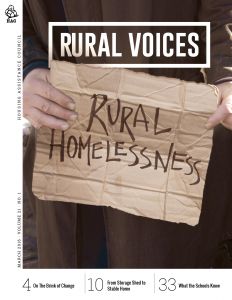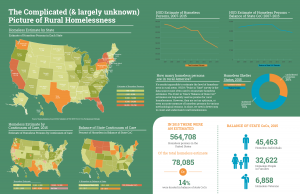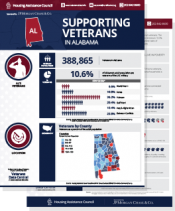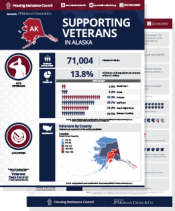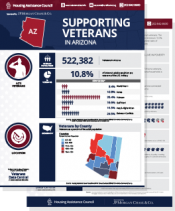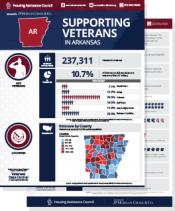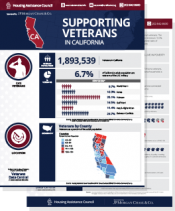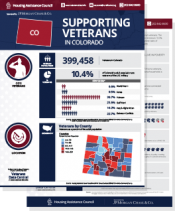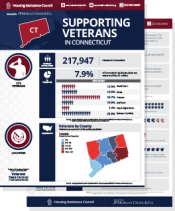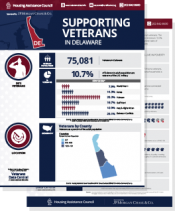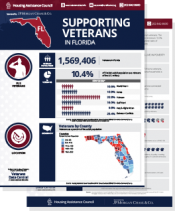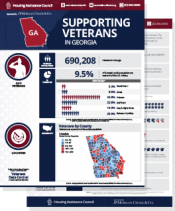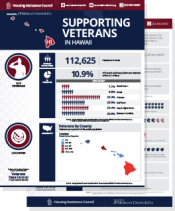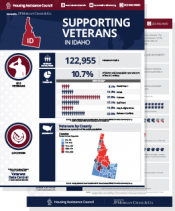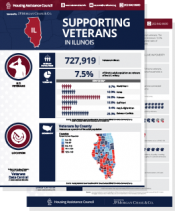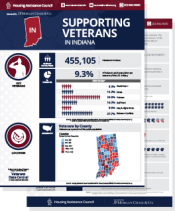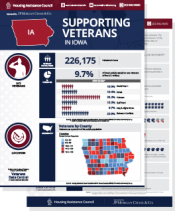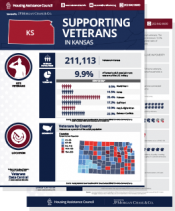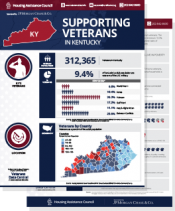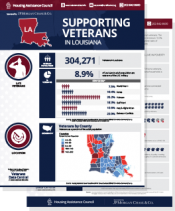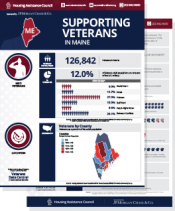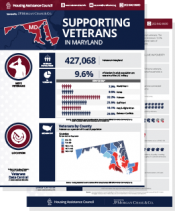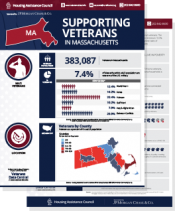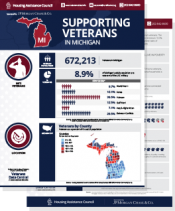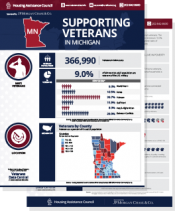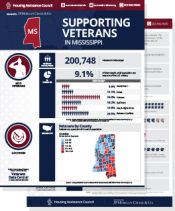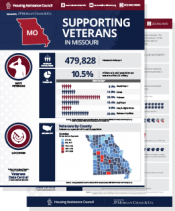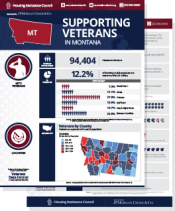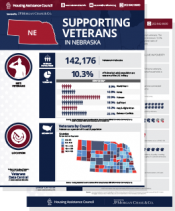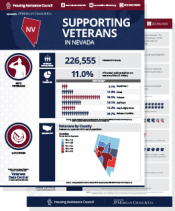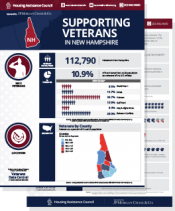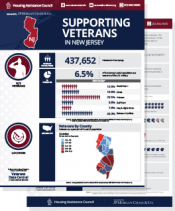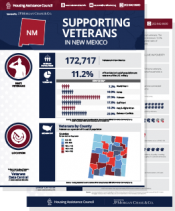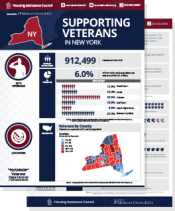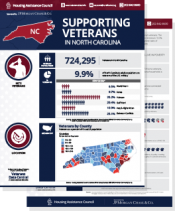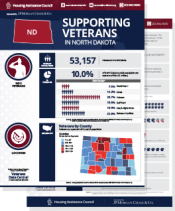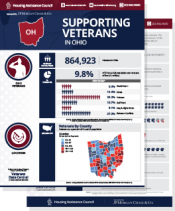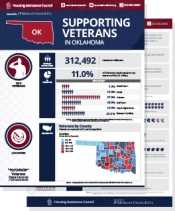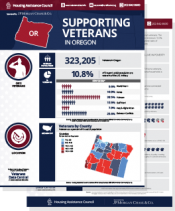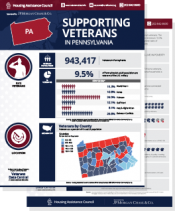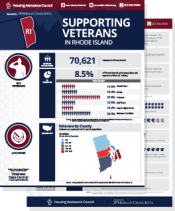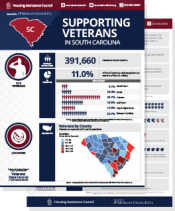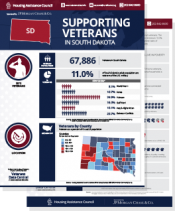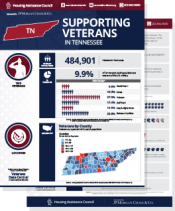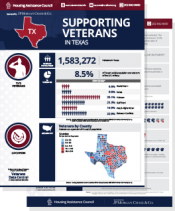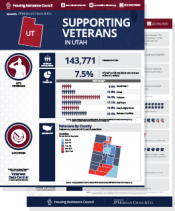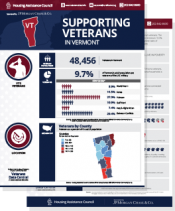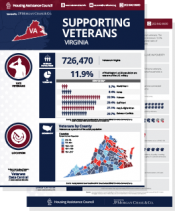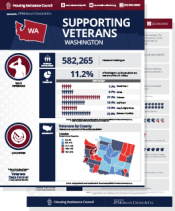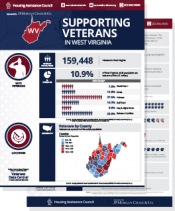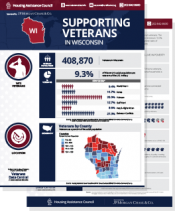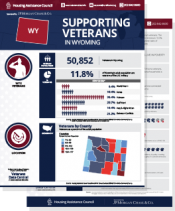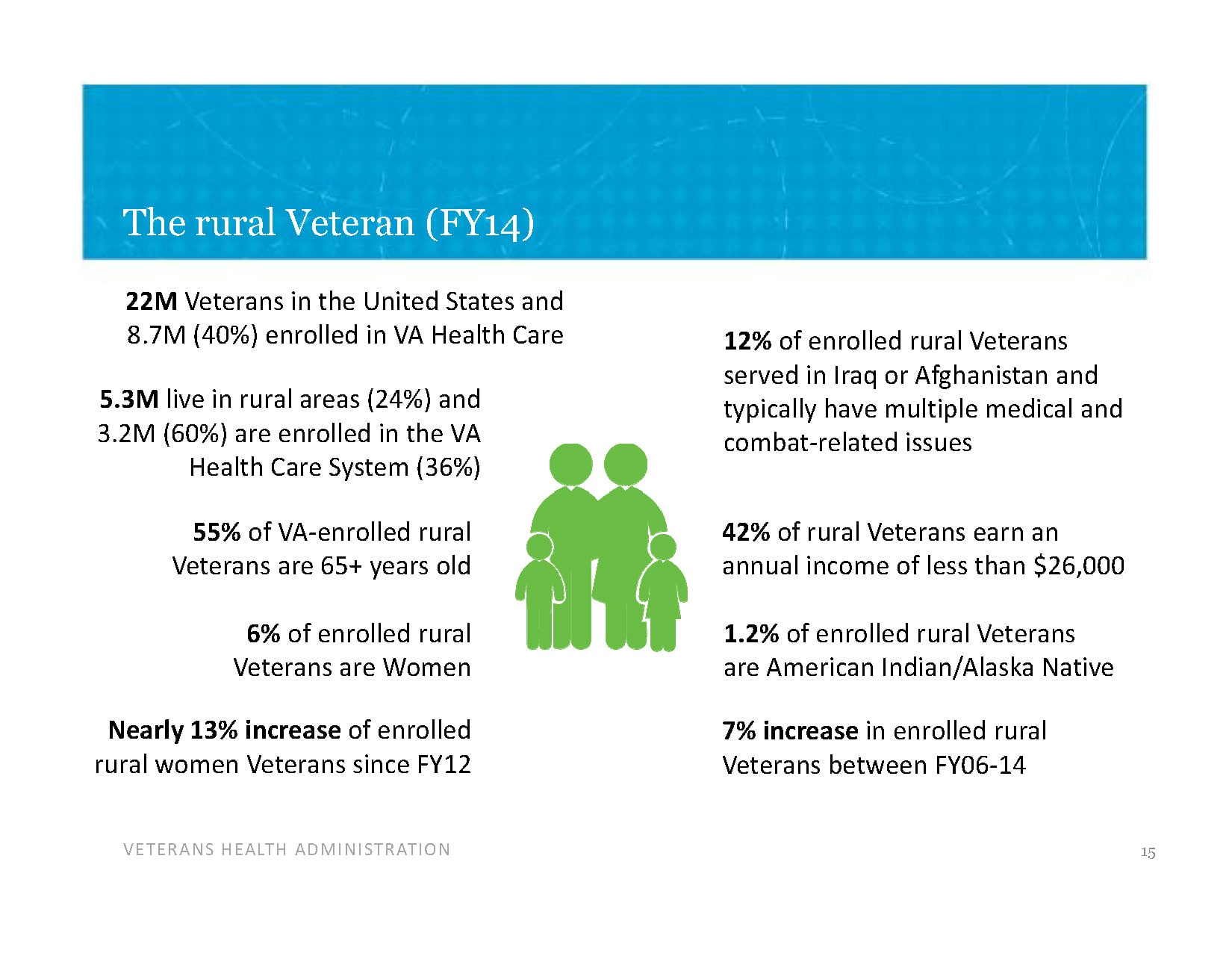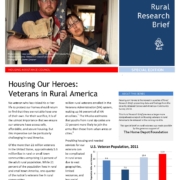HAC News: October 31, 2019
News Formats. pdf
October 31, 2019
Vol. 48, No. 22
Senate passes USDA and HUD funding bill for FY20 • Comments sought on changes to Fannie Mae and Freddie Mac’s Duty to Serve plans, and new documents released • CIRD hosts 2019 learning cohort summit in Thomas, WV • Senate’s USDA funding bill includes money to address black land loss • Bill to legalize farmworkers and revise H-2A program would also raise rural housing funding • Family Unification Program vouchers available • Improving CRA for Rural America • The Older Population in Rural America: 2012-2016 • Adversity and Assets: Identifying Rural Opportunities • Evaluation of HUD’s Rental Assistance Demonstration (RAD): Final Report • Lenders: To Preserve Affordable Housing, Manage Climate Risk • Rural Minnesota’s Lack of Shelters Make Homeless an “Invisible” Population • Urban and Rural Homeless Comparisons • Apply by Nov. 15 for HAC grants to support housing to rural veterans • REGISTER BY NOV. 1 FOR 502 OR HOUSING COUNSELOR TRAINING! • Need capital for your affordable housing project?
HAC News Formats. pdf
October 31, 2019
Vol. 48, No. 22
November is Native American Heritage Month.
Senate passes USDA and HUD funding bill for FY20.
The Senate’s first FY20 appropriations bill passed on October 31, a “minibus” package that includes funding for HUD and USDA, along with other agencies. Amendments adopted on the Senate floor included two rural housing provisions. One, sponsored by Sens. Tina Smith (D-MN) and Mike Rounds (R-ND), would allow owners of USDA-financed rental properties to request Rental Assistance agreements with terms of 20 years rather than one year; the funding for longer contracts would still be subject to annual appropriations. The other, from Sens. Smith and Marco Rubio (R-FL), tells USDA to prioritize rental properties’ maintenance needs. Differences between the Senate and House bills will need to be resolved, so these agencies may still be included in a second continuing resolution that is expected to fund the government after the current CR ends on November 21.
Comments sought on changes to Fannie Mae and Freddie Mac’s Duty to Serve plans, and new documents released.
The Federal Housing Finance Agency, which regulates Fannie Mae and Freddie Mac, requests input by November 15 on modifications to the enterprises’ plans for achieving their Duty to Serve obligations for manufactured housing, affordable housing preservation and rural housing. FHFA also released a strategic plan that sets out a framework for preparing to end the entities’ conservatorships, a 2020 scorecard explaining how their activities will be assessed, and a report covering their 2018 affordable housing activities. The report concludes that in 2018 both exceeded the benchmarks for all their housing goals and complied with their Duty to Serve requirements.
CIRD hosts 2019 learning cohort summit in Thomas, WV.
Working with local host partners and regional community lenders, Woodlands Development Group welcomed 34 participants from 17 states to the Citizens’ Institute on Rural Design Cohort Learning Summit. CIRD is a collaboration among HAC, the National Endowment for the Arts and buildingcommunityWORKSHOP. The two-and-a-half-day event included workshops on different design and creative placemaking concepts, site visits to ongoing economic development projects in the town of Thomas, WV, and peer exchange activities that provided participants an opportunity to advance their own rural design challenges.
Senate’s USDA funding bill includes money to address black land loss.
The Senate’s FY20 USDA appropriations bill includes $5 million to launch a program authorized in the 2018 Farm Bill that will make loans to intermediaries to help resolve ownership issues for farmers with “heirs’ property” – land that has multiple legal owners after ownership passed through several generations without wills or clear titles. African-American farmers in the South have been deemed ineligible for USDA loans when they could not prove title to their land, and in some cases have lost the land. The issue, along with other causes of black land loss, has been covered in recent articles by the Atlantic, the New Yorker, the Washington Post, the New Food Economy, the Pew Trusts and others.
Bill to legalize farmworkers and revise H-2A program would also raise rural housing funding.
The Farm Workforce Modernization Act, introduced on October 30 by Reps. Zoe Lofgren (D-CA) and Dan Newhouse (R-WA), would create a process for farmworkers and their families to obtain legal status in the U.S., tweak the H-2A visa program for temporary farmworkers, increase the number of green cards available for farmworkers and establish a mandatory E-Verify system for farm employers to check their workers’ legal status. Its housing provisions include the text of the Strategy and Investment in Rural Housing Preservation Act, H.R. 3620, which passed the House on September 10, with some additions including the 20-year Rental Assistance contract provision that is also in the Senate’s FY20 USDA appropriations bill. The Farm Workforce Modernization Act would also allow Rental Assistance to cover up to half the operating costs of Section 514/516 housing that is occupied by H-2A workers if the units were previously unoccupied or underutilized by other workers. Finally, it would authorize up to $200 million for Section 514 loans and $30 million for Section 516 grants, as well as $2.7 billion for Section 521 Rental Assistance, each year through fiscal year 2029.
Family Unification Program vouchers available.
HUD will award new FUP vouchers to PHAs that partner with public child welfare agencies and Continuums of Care to administer assistance on behalf of families for whom the lack of adequate housing is a primary factor in a potential loss of custody or on behalf of young people between 18 and 24 at risk of homelessness upon discharge from foster care. Applications are due December 17. For more information, contact HUD staff.
Recent publications and media of interest
- Improving CRA for Rural America, written by HAC researcher Keith Wiley for Shelterforce, argues that Community Reinvestment Act regulations should be recrafted to incentivize investments in underserved and economically distressed communities, many of which are rural.
- The Older Population in Rural America: 2012–2016, a recent Census Bureau report, discusses “new and important ways” that aging populations could impact rural America including housing and public transportation options. Research shows that while seniors want to remain in their own homes, those in rural areas frequently face challenges related to having few housing options and the limited availability of nearby social services.
- Adversity and Assets: Identifying Rural Opportunities, part of a series by the Center for American Progress, examines economic trends and indicators in counties across the rural-urban continuum.
- Evaluation of HUD’s Rental Assistance Demonstration (RAD): Final Report concludes that initial implementation of HUD’s RAD program for conversion of public housing to project-based Section 8 housing accomplished its principal goals of leveraging capital, preserving affordable housing and mitigating relocation effects on tenants.
- Lenders: To Preserve Affordable Housing, Manage Climate Risk, a National Resources Defense Council blog post, argues that disaster recovery funding favors financially better-off homeowners and needs to change to equally prioritize recovery funding for renters and homeowners.
- Rural Minnesota’s Lack of Shelters Make Homeless an “Invisible” Population, a radio segment and longer companion article, tell how homelessness for one single mother living in rural Minnesota is complicated by the lack of shelter options for rural communities.
- Urban and Rural Homeless Comparisons, one of a set of charts from the National Alliance to End Homelessness, shows what races, ethnicities and genders are over- or underrepresented in urban and rural homeless populations.
Apply by Nov. 15 for HAC grants to support housing aid to rural veterans.
HAC’s Affordable Housing for Rural Veterans initiative supports local nonprofit housing development organizations that meet or help meet the affordable housing needs of veterans in rural areas. Grants typically range up to $30,000 per organization and must support bricks-and-mortar projects that assist low-income, elderly and/or disabled veterans with home repair and rehab needs, support homeless veterans, help veterans become homeowners and/or secure affordable rental housing. This initiative is funded through the generous support of the Home Depot Foundation. Applications are due November 15 by 5:00 pm Eastern time. For more information, contact HAC staff, ahrv@ruralhome.org.
*REGISTER BY NOV. 1 FOR 502 PACKAGING OR HOUSING COUNSELOR TRAINING!*
Only a few spaces remain. Both courses will be held in Tampa, FL on November 12-14.The Section 502 packaging advanced coursetrains experienced participants to assist potential borrowers and work with RD staff, other nonprofits and regional intermediaries to deliver successful Section 502 loan packages. The housing counseling course sets you up for success in meeting HUD’s new certification requirements for housing counselors. For more information, contactHAC staff, 404-892-4824.
Need capital for your affordable housing project?
HAC’s loan funds provide low interest rate loans to support single- and multifamily affordable housing projects for low-income rural residents throughout the U.S. and territories. Capital is available for all types of affordable and mixed-income housing projects, including preservation, farmworker, senior and veteran housing. HAC loan funds can be used for pre-development, site acquisition, site development and construction/rehabilitation. Contact HAC’s loan fund staff at hacloanfund@ruralhome.org, 202-842-8600.
Please note: HAC is not able to offer loans to individuals or families. Borrowers must be nonprofit or for-profit organizations or government entities (including tribes).


 Supported by The Home Depot Foundation, grants will go to nonprofits, tribally designated housing entities, and housing authorities serving veterans at or below 80% of area median income in rural areas. Projects may be new construction or rehab, temporary or permanent housing, in progress or beginning within 12 months.
Supported by The Home Depot Foundation, grants will go to nonprofits, tribally designated housing entities, and housing authorities serving veterans at or below 80% of area median income in rural areas. Projects may be new construction or rehab, temporary or permanent housing, in progress or beginning within 12 months. 